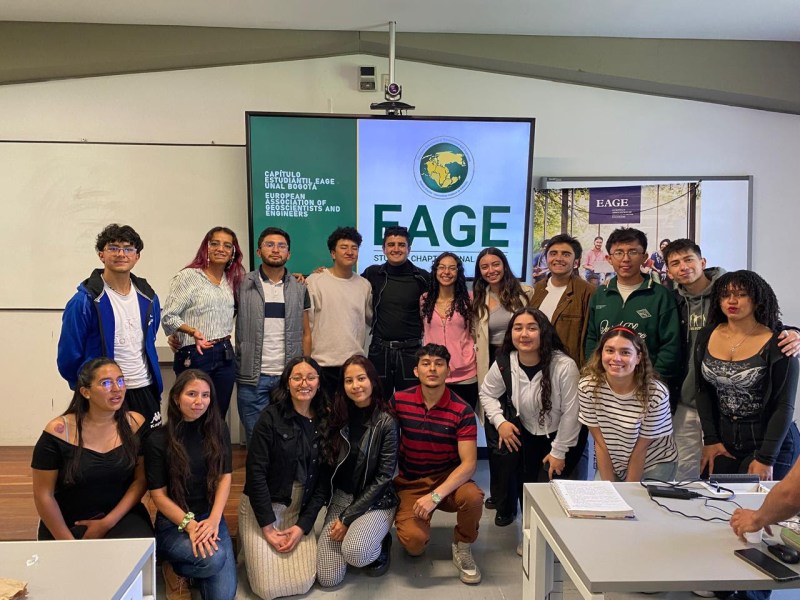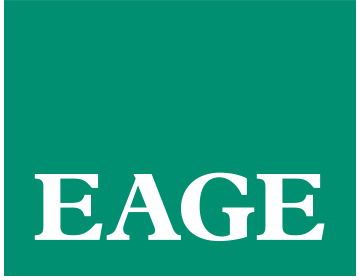EAGE Student chapters worldwide serve as hubs of activities for geoscience and engineering students to meet, exchange ideas and initiate activities under the EAGE umbrella and collaborate with EAGE’s Student Affairs Team.
EAGE encourages its chapters to be creative and work rigorously to become an essential part of local student communities by demonstrating a high level of interest in the future of this industry and research. In order to foster and stimulate this interest, EAGE and the EAGE Student Fund have a variety of programmes and support opportunities in place to help student develop their membership, participate in EAGE activities and develop other projects. We also encourage student chapter representatives to develop their own ideas, conferences and projects!
Does your university not yet have an EAGE Student Chapter and do you have the ambition to start one? Then we are looking for you!
Meet the Best EAGE Student Chapter 2025!

Congratulations to the EAGE Student Chapter at Universidad Nacional de Colombia, Bogotá!
Find out more here.


Student Chapter overview
The renewal window for 2021 student chapters is currently open.
| University | Country |
|---|---|
| Vietnam Institute of Petroleum | Vietnam |
| Colorado School of Mines | USA |
| Heriot-Watt University | United Kingdom |
| Teesside University | United Kingdom |
| University of Aberdeen | United Kingdom |
| University of Leeds | United Kingdom |
| Istanbul Technical University | Turkey |
| Delft University of Technology | The Netherlands |
| University of Dar Es Salaam | Tanzania |
| Swiss Federal Institute of Technology | Switzerland |
| Uppsala University | Sweden |
| Korean Maritime and Ocean University | South Korea |
| University of the Witwatersrand | South Africa |
| Industrial University of Tyumen | Russia |
| National Research Tomsk Polytechnical University | Russia |
| Novosibirsk State University | Russia |
| AGH- University of Science and Technology | Poland |
| Delta State University | Nigeria |
| Ebonyi State University | Nigeria |
| Enugu State University of Science and Technology | Nigeria |
| Ibrahim Badamsi Babangida University | Nigeria |
| Makerere University | Nigeria |
| Mountain Top University | Nigeria |
| University of Port Harcourt | Nigeria |
| Mongolian University of Science and Technology | Mongolia |
| Autonomous Univerity of Carmen | Mexico |
| Mexican Petroleum Institute | Mexico |
| National University of Malaysia | Malaysia |
| Universiti Teknologi Petronas | Malaysia |
| Universiti Malaya | Malaysia |
| University of Nairobi | Kenya |
| Kyoto University | Japan |
| National University of Ireland, Galway | Ireland |
| AmirKabir University of Technology | Iran |
| Petroleum University of Technology | Iran |
| Shahrood University of Technology | Iran |
| Unsiyah University | Indonesia |
| Universitas Syiah Kuala | Indonesia |
| Indian Institute of Technology | India |
| Indian School of Mines | India |
| Rajiiv Gandhi Institute of Petroleum | India |
| National Technical University of Athens | Greece |
| KNUST, Kumasi Ghana | Ghana |
| Freie Universitat Berlin | Germany |
| GFZ German Research Centre for Geosciences | Germany |
| RWTH Aachen University | Germany |
| TU Bergakademie Freiberg | Germany |
| University of Potsdam | Germany |
| Aix-Marseille University | France |
| IFP School | France |
| INRS | France |
| UniLaSalle Beauvais | France |
| Université de Grenoble Alpes | France |
| Al-Azhar University | Egypt |
| Suez University | Egypt |
| Instituto Politecnico Nacional | Colombia |
| Universidad America | Colombia |
| Universidad de los Andes | Colombia |
| Universidad Eafit | Colombia |
| Universidad Nacional de Colombia | Colombia |
| Universidad Pedagógica y Tecnológica de Colombia | Colombia |
| China University of Petroleum – Beijing | China |
| Peking University | China |
| Memorial University of Newfoundland | Canada |
| University of Alberta | Canada |
| University of Calgary | Canada |
| National Observatory | Brazil |
| State University of Northern Rio de Janeiro | Brazil |
| Universiidade Federal Fluminense | Brazil |
| University of Benin | Benin |
| University of Dhaka | Bangladesh |
| Curtin University | Australia |
| Universidad Nacional de la Plata | Argentina |

